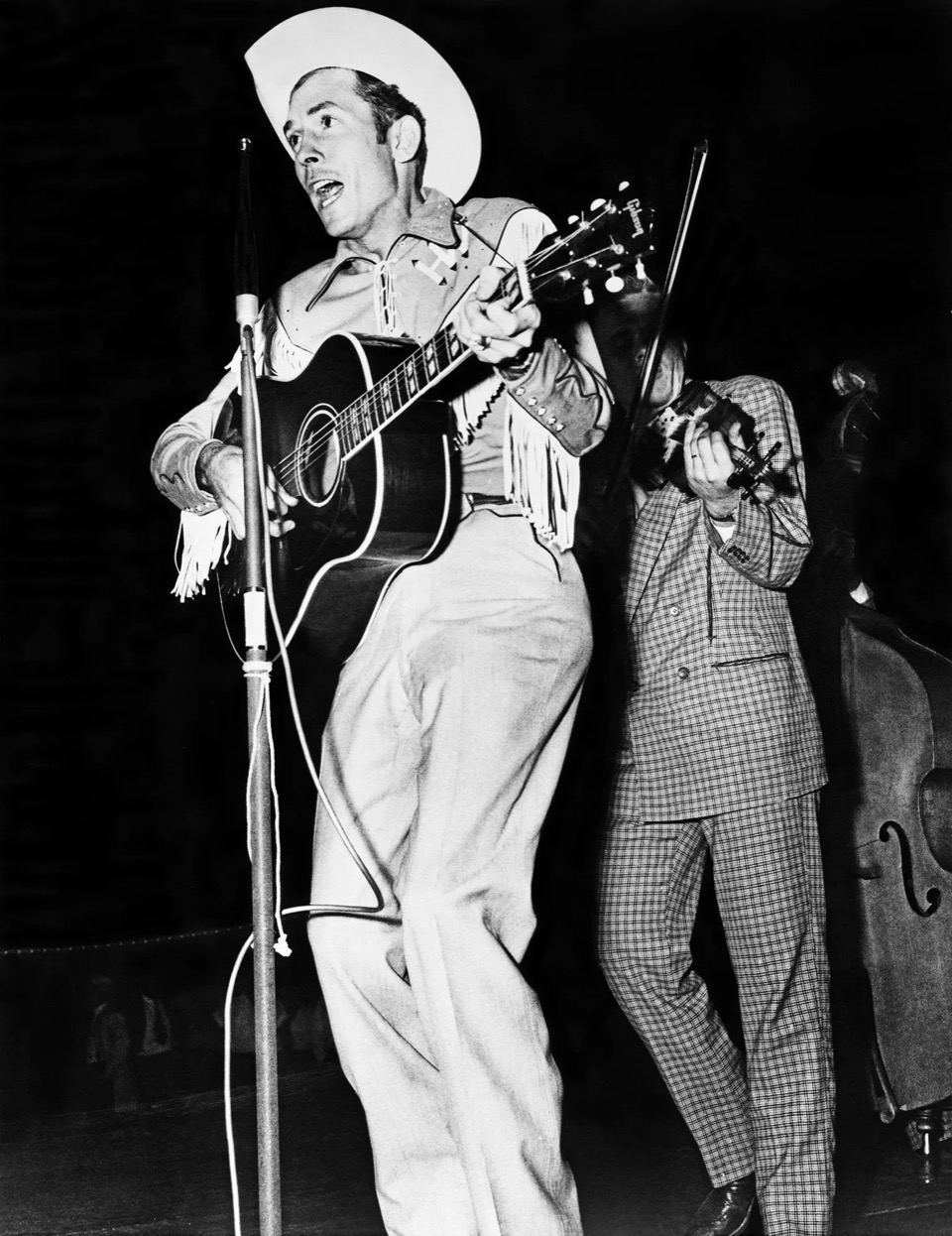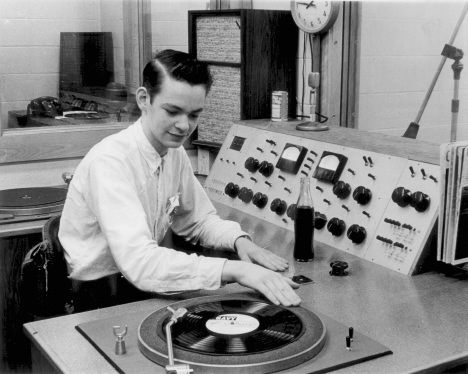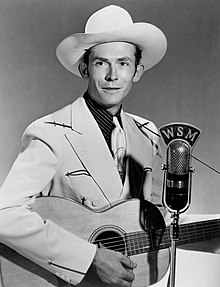EPISODE 658 HUMBERSIDE DISC JOCKEY AND HANK WILLIAMS


alan skeoch
Oct. 13, 2022

HANK WILIAMS
Your cheatin’ heart will make you weepYou’ll cry and cry and try to sleepBut sleep won’t comeThe whole night throughYour cheatin’ heart will tell on you
When tears come down like fallin’ rainYou’ll toss around and call my nameYou’ll walk the floor the way I doYour cheatin’ heart will tell on you
Your cheatin’ heart will pine somedayAnd crave the love you threw awayThe time will come when you’ll be blueYour cheatin’ heart will tell on you
When tears come down like fallin’ rainYou’ll toss around and call my nameYou’ll walk the floor the way I doYour cheatin’ heart will tell on you
IT BEGAN AS A P.A. ANNOUNCEMENT AT HUMBERSIDE. C. I. IN 1955
“WBEN radio wants a student disc jockey — doing book and music reviews — if anyone
is interested come to the main office today.” This appeal was part of the morning
announcements at Humberside Collegiate Institute one morning in 1955.
“Who would be stupid enough to do that,” was general student reaction except for me.
Along with two nice girls from Bloor Collegiate, I became a disc jockey for a few months.
Once a week we would meet with the real disc jockey at the tiny studio on the second
floor of a nondescript office building. This was not big time but it was interesting…even fun.
The radio station wanted to attract high school students as listeners and the three of us
were the bait. Once a week we would do a short on air review of a book or a musician.
Free books and recordings was payment. Fame Would follow our insight into fine literature
and great music.

PICTURE OF A RADIO STATON LIKE WE USED IN 1955
I was about the age of this disc jockey. It was possible to run
around the broadest table as my female friends from Bloor
Collegiate discovered.
Well things did not exactly go as planned. The books were not earth shattering. And who had
time to read them anyway. Most of my high school time in the fall of 1955 e playing football in
the mistaken belief that my uniform would attract girls. I never read the books. Maybe picked
a page then made some asinine comment about the author. “Must be smart uses a lot of big words”
No danger of lawsuits because no one
I knew even listened.
There were two events that made my disc jockey career memorable however.
The two girls from Bloor Colegiste were gifted. Really bright. Cheerful. Good looking. And they
actually read the books and played the records. My comments were generally stupid. For instance
I had the same comment for every record.
“And what do you think of that recording, Alan?”
“Well, I like the beat.”
Liking the ‘beat” was my sole claim to fame in 1955. I don’t remember one girl at Humberside
ever saying a word about my role as a reviewer. And saying “I like the beat” may have shortened
my radio career.
The experience all boiled down to two memorable events.
TWO MEMORABLE EVENTS
1) Our host was a professional and lonely disc jockey. Place the emphasis on the word lonely.
He had sexual interests in the girls from Bloor Collegiate. They counted on
me to protect them. One of our last meetings when I was a little late I entered the broadcast
booth to find our host chasing the girls around the table. Was he for real? The girls laughed and
ran but I think they were losing interest in their ‘on air’ experience. Was he radio host serous?
Was he capable of molesting the girls. I think not. Then again maybe he was serious Ho could
he molest two girls at once? (Today, in the year 2022, this would be scandalous. In 1955 it
seemed funny to me, perhaps a little sad. Not sure the girls agreed)
“Alan, try not and be late again.”
2) The Bloor C. I. girls were very cultured. Think they read the books I fondly remember their
taste in music. Classical music. Think they were real musicians. But they did not like
Hank Williams who I adored. Somewhere in our cellar is a 45 rpm collection of Hank’s
recordings.
“Alan, we do not like country music. You do the review ,,, and keep the Hank Williams album”
“Great!”
My review was not earth shattering.. Just the usual, “I like the beat” . But I loved the album and
still remember the Hank Williams songs. I did not know about his alcoholism and his
early death of a Heart attack when 29 years old. Nor did I know he had a powerful influence
of other great pop stars of the 1950’s such as ” Elvis Presley, Bob Dylan, Johnny Cash, Chuck Berry,
Jerry Lee Lewis, George Jones, George Strait, Charley Pride, The Beatles and the Rolling Stones, among others.”
How could these terrific girls not love Hand Willims? Maybe they knew about his alcoholism which
I did not. My musical interests were a notch or two below theirs that’s for sure
(Note: Years later when our oldest son took piano lessons I asked the instructor
who was a classical musician, “Could you teach Kevin to play the piano like
Jerry Lee Lewis?” “Are you serious?” “You bet, I like the way he pounds the piano and jumps
around.” Which was the end of Kevin’s piano lessons.
There you have it. Two memorable events in my career as a disc jockey. Our host chasing my female
friends around the studio. And my acquiring of a HanK Williams Album which included some of these wonderful
country blues songs:
alan skeoch
Oct. 13,2022
POST SCRIPT> NOTES AND TITLES – HANK WILLIAMS
song lyrics
- (I Heard That) Lonesome Whistle
- (I`m Praying For The Day) Peace Will Come
- 30 Pieces Of Silver
- `neath A Cold Gray Tomb Of Stone
A
- A Country Boy Can Survive
- A Home In Heaven
- A House Of Gold
- A House Without Love
- A Mansion On The Hill
- A Message To My Mother
- A Picture From Life`s Other Side
- A Stranger In The Night
- A Teardrop On The Rose
- All My Rowdy Friends Are Coming Over Tonight
- All The Love I Ever Had
- Alone And Forsaken
- Are You Walking And A-talking With The Lord
B
- Baby We’re Really In Love
- Bayou Pon Pon
- Be Careful Of Stones You Throw
- Beyond The Sunset
- Blue Eyes Crying In The Rain
- Blue Love
C
D
F
H
- Half As Much
- Hank Williams Version Of Freight Train Blues
- Help Me Understand
- Hey, Good Lookin’
- Honey, Do You Love Me, Huh
- Honky Tonk Blues
- Honky Tonkin’
- House Without Love (Is Not A Home)
- How Can You Refuse Him Now
- Howlin’ At The Moon
I
- I Ain’t Gonna Love You Anymore
- I Ain’t Got Nothin’ But Time
- I Can’t Get You Off My Mind
- I Can’t Help It (If I’m Still In Love With You)
- I Can`t Escape From You
- I Could Never Be Ashamed Of You
- I Cried Again
- I Don`t Care (If Tomorrow Never Comes)
- I Dreamed About Mama Last Night
- I Hang My Head And Cry
- I Just Don’t Like This Kind Of Livin’
- I Saw The Light
- I Told A Lie To My Heart
- I Wish I Had A Nickel
- I Won’t Be Home No More
- I’d Still Want You
- I’ll Never Get Out Of This World Alive
- I’m A Long Gone Daddy
- I’m Gonna Sing
- I’m Satisfied With You
- Im So Lonesome I Could Cry
- It Just Don`t Matter Now
- I`ll Be A Bachelor `till I Die
- I`m Free At Last
- I`m Going Home
- I`m So Tired Of It All
- I`m Sorry For You, My Friend
- I`ve Just Told Mama Goodbye
- I`ve Lost The Only Love I Knew
J
L
M
- Men With Broken Hearts
- Mind Your Own Business
- Minni-ha-cha
- Moanin’ The Blues
- Mother Is Gone
- Move It On Over
- My Bucket’s Got A Hole In It
- My Cold, Cold Heart Is Melted Now
- My Heart Would Know
- My Love For You (Has Turned To Hate)
- My Son Calls Another Man Daddy
- My Sweet Love Ain`t Around
N
- Never Been So Lonesome
- Next Sunday Darlin` Is My Birthday
- No One To Welcome Me Home
- No One Will Ever Know
- No, Not Now
- Nobody’s Lonesome For Me
P
R
S
- Singing Waterfall
- Six More Miles
- Six More Miles (To The Graveyard)
- Someday You`ll Call My Name
- Something Got A Hold Of Me
- Sometimes Late At Night
T
- Take These Chains From My Heart
- Tennessee Border
- Thank God
- The Alabama Waltz
- The Angel Of Death
- The Battle Of Armageddon
- The First Fall Of Snow
- The Funeral
- The Great Judgement Morning Writer ?
- The Old Log Train
- The Pale Horse And His Rider
- The Prodigal Son
- The Tramp On The Street
- The Waltz Of The Wind
- Theres No Room In My Heart For The Blue
- There`ll Be No Teardrops Tonight
- There`s A Tear In My Beer
- There`s Nothing As Sweet As My Baby
- They’ Ll Never Take Her Love From Me
- Thy Burdens Are Greater Than Mine
- Too Many Parties Too Many Pals
- Two Faced Preacher
W
- We Live In Two Different Worlds
- We’re Getting Closer To The Grave Each Day
- Wealth Won’t Save Your Soul
- Wearin` Out Your Walkin` Shoes
- Weary Blues (From Waitin`)
- Wedding Bells
- When God Comes And Gathers His Jewels
- When The Book Of Life Is Read
- Where The Soul Of Man Never Dies
- Whiskey Bent And Hell Bound
- Why Don’t You Love Me
- Why Should I Cry
- Why Should We Try Anymore
- Window Shopping
- With Tears In My Eyes
- Won’t You Sometimes Think Of Me
Y
- You Better Keep It On Your Mind
- You Broke Your Own Heart
- You Can’t Take My Memoriues Of You
- You Caused It All By Telling Lies
- You Win Again
- You’re Gonna Change (Or I’m Gonna Leave)
- Your Cheatin’ Heart
- Your Turn To Cry
- You`re Barkin` Up The Wrong Tree Now
Hank Williams
|
Hank Williams
|
|
|---|---|

Williams in 1951
|
|
| Born |
Hiram Williams
Mount Olive, Butler County, Alabama, U.S.
|
| Died | January 1, 1953 (aged 29) Oak Hill, West Virginia, U.S.
|
| Resting place | Oakwood Annex Cemetery Montgomery, Alabama, U.S.  upload.wikimedia.org/wikipedia/commons/thumb/5/55/WMA_button2b.png/34px-WMA_button2b.png 2x” class=”noprint wmamapbutton” title=”Show location on an interactive map” alt=”” style=”border: 0px; vertical-align: middle; padding: 0px 3px 0px 0px; cursor: pointer;”>32.3847°N 86.2913°W upload.wikimedia.org/wikipedia/commons/thumb/5/55/WMA_button2b.png/34px-WMA_button2b.png 2x” class=”noprint wmamapbutton” title=”Show location on an interactive map” alt=”” style=”border: 0px; vertical-align: middle; padding: 0px 3px 0px 0px; cursor: pointer;”>32.3847°N 86.2913°W |
| Other names |
|
| Occupation |
|
| Spouses | |
| Children |
|
| Relatives |
|
| Musical career | |
| Genres | |
| Instrument(s) |
|
| Years active | 1937–1952 |
| Labels | |
| Website | HankWilliams.com |
| Signature | |
Hiram “Hank” Williams (September 17, 1923 – January 1, 1953) was an American singer, songwriter, and musician. Regarded as one of the most significant and influential American singers and songwriters of the 20th century, he recorded 55 singles (five released posthumously) that reached the top 10 of the Billboard Country & Western Best Sellers chart, including 12 that reached No. 1 (three posthumously).
Born and raised in Alabama, Williams was given guitar lessons by African-American blues musician Rufus Payne in exchange for meals or money. Payne, along with Roy Acuff and Ernest Tubb, had a major influence on Williams’s later musical style. Williams began his music career in Montgomery in 1937, when producers at local radio station WSFA hired him to perform and host a 15-minute program. He formed the Drifting Cowboys backup band, which was managed by his mother, and dropped out of school to devote his time to his career. When several of his band members were drafted during World War II, he had trouble with their replacements, and WSFA terminated his contract because of his alcoholism.
Williams married singer Audrey Sheppard, who was his manager for nearly a decade. After recording “Never Again” and “Honky Tonkin'” with Sterling Records, he signed a contract with MGM Records. In 1947, he released “Move It on Over“, which became a hit, and also joined the Louisiana Hayride radio program. One year later, he released a cover of “Lovesick Blues“, which carried him into the mainstream. After an initial rejection, Williams joined the Grand Ole Opry. He was unable to read or notate music to any significant degree. Among the hits he wrote were “Your Cheatin’ Heart“, “Hey, Good Lookin’“, and “I’m So Lonesome I Could Cry“.
Years of back pain, alcoholism, and prescription drug abuse severely compromised Williams’s health. In 1952, he divorced Sheppard and married singer Billie Jean Horton. He was dismissed by the Grand Ole Opry because of his unreliability and alcoholism. On New Year’s Day 1953, he suffered from heart failure and died suddenlyat the age of 29 on the way to Oak Hill, West Virginia. Despite his relatively brief career, he is one of the most celebrated and influential musicians of the 20th century, especially in country music. Many artists have covered his songs and he has influenced Elvis Presley, Bob Dylan, Johnny Cash, Chuck Berry, Jerry Lee Lewis, George Jones, George Strait, Charley Pride, The Beatles and the Rolling Stones, among others. Williams was inducted into the Country Music Hall of Fame in 1961, the Songwriters Hall of Fame in 1970, and the Rock and Roll Hall of Fame in 1987. The Pulitzer Prize jury awarded him a posthumous special citation in 2010 for his “craftsmanship as a songwriter who expressed universal feelings with poignant simplicity and played a pivotal role in transforming country music into a major musical and cultural force in American life”.
